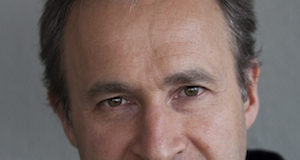Tag: Schizophrenia
The Psychiatrist who Wanted to Make Madness Normal
From BBC: RD Laing, Scotland's most famous psychiatrist who has been revered as the "high priest of anti-psychiatry," is the subject of a new film called Mad...
B Vitamins Reduce Schizophrenia Symptoms
From Hindustan Times: Treatments using high-dose B-vitamins, including B6, B8, and B12, can considerably reduce symptoms of schizophrenia.
Article →
“Not Not Guilty: My Brother, Schizophrenia, and the State of Illinois”
From The Fix: "This is the reality of where mental health remains—just as stigmatized and embarrassingly disentangled as it was last year at this...
Understanding Extreme States: An Interview with Lloyd Ross
In this interview, Lloyd Ross of ISEPP and I discuss how to help people experiencing delusions, hallucinations, paranoia, and other problems commonly associated with a diagnosis of “schizophrenia.” We discuss the problems with the biological model of “mental illness” as contrasted with a more psychosocial, contextual model of distress.
Killing “Schizophrenics”: Contemporary U.S. Psychiatry Versus Nazi Psychiatry
In any society that prioritizes economic efficiency, productivity and order above life and all of life’s varieties, people experiencing altered and extreme emotional states will be seen as defective and as burdens—monkey wrenches that disturb the societal assembly line.
Researcher Acknowledges His Mistakes in Understanding Schizophrenia
Sir Robin Murray, a professor at the Institute of Psychiatry, Psychology, and Neuroscience in London, states that he ignored social factors that contribute to ‘schizophrenia’ for too long. He also reports that he neglected the negative effects antipsychotic medication has on the brain.
Is Schizophrenia Associated with Brain Volume Changes Independently of Medication?
Duncan Double, on his Critical Psychiatry blog, published a series of posts exploring the effects of antipsychotics on brain volume and the contention that...
Understanding Extreme States: An Interview with Stephen Harrod Buhner
Finding myself intrigued by this man who'd never trained in psychiatry or psychology but who nevertheless worked effectively with people in severe distress using self-developed theories, I tracked Buhner down. I asked him to speak to me about these issues, and here is what resulted.
Study Suggests Long-Term Antipsychotic Use May Result in Poorer Cognitive Functioning
Association found between long-term antipsychotic use and poorer performance on cognitive tasks in adults diagnosed with ‘schizophrenia.’
Safety Analysis Weighs Harms and Benefits of Antipsychotic Drugs
The researchers find that the drug effects for reducing psychosis are small and that treatment failure and severe side effects are common.
A Best Kept Secret
After working in the field, I have found that the majority of people in the mental health system are not getting adequate care like I received during my first psychotic episode. I was lucky enough to have a doctor who took a nontraditional approach to schizophrenia and worked with me on coming off of medications.
Understanding Extreme States: An Interview with Paris Williams
In this interview we will explore often-contentious topics including the non-validity of the biological model, the link between parenting problems and psychosis, and how best to help psychotic people who are fighting both emotional conflicts and a psychiatric system drugging them into silence.
Curing Schizophrenia via Intensive Psychotherapy
I believe that an Intensive Psychotherapy can lead to healing and, often, a cure of psychotic states. By cure I mean the cessation of delusions and hallucinations, and a gradual titration off of antipsychotic medication, with the cure lasting—even without continuing psychotherapy.
Meta-Analysis Finds Exercise Improves Cognition in Individuals with Schizophrenia
A new review, published in Schizophrenia Bulletin, examines the effects of exercise on cognition in individuals diagnosed with 'schizophrenia.' The results of the meta-analysis...
Confessions of a Trespasser
In a recently published commentary in Psychiatric Times, Ronald Pies and Joseph Pierre made this assertion: Only clinicians, with an expertise in assessing the research literature, should be weighing in on the topic of the efficacy of psychiatric drugs. They wrote their commentary shortly after I had published on madinamerica “The Case Against Antipsychotics,” and it was clear they had me in their crosshairs.
Study Finds Improved Functioning for ‘Schizophrenia’ Without Antipsychotics
Long-term treatment with antipsychotic drugs is currently considered the standard treatment for patients diagnosed with ‘schizophrenia.’ A new study challenges this practice, however. The...
The Case Against Antipsychotics
This review of the scientific literature, stretching across six decades, makes the case that antipsychotics, over the long-term, do more harm than good. The drugs lower recovery rates and worsen functional outcomes over longer periods of time.
More Children Receiving ‘Off-Label’ Antipsychotics for ‘ADHD’
Over the past twenty years, the number of prescriptions for atypical antipsychotics written to children and young adults between four and eighteen has increased...
Smoking in Pregnancy Linked to Risk of Schizophrenia Diagnosis in Later...
In the first study of its kind, researchers from Finland found the “most definitive evidence to date” that smoking during pregnancy is associated with the eventual diagnosis of schizophrenia in offspring. After controlling for other potential variables, the study, published ahead of print in The American Journal of Psychiatry, revealed a 38% increased odds of developing symptoms diagnosed as schizophrenia in young adults who were exposed to high levels of nicotine in utero.
Mental Health Documentary “Healing Voices” Premiers Across 130 Communities in 8...
The producers of “Healing Voices” ‐ a new social action documentary about mental health ‐ are releasing the film via community screening partners in...
“There are no ‘Schizophrenia Genes’: Here’s Why”
Richard Bentall and David Pilgrim offer their critique of genetic theories of schizophrenia for the Conversation. "The high heritability estimates reported in earlier quantitative...
Epidemiologists Decry Major Problems in US Psychiatric Practice
In an exchange published in the Journal of Clinical Epidemiology, researchers take turns highlighting major problems in the way psychiatry is currently practiced in the United States. In response to an article by Vinay Prasad calling for an insistence on randomized control trials in “evidence-based” medicine, Jose de Leon, from the Mental Health Research Center at the University of Kentucky begins the back-and-forth by pointing out that this type of evidence has been detrimental to the field of mental health.
Jim van Os: New Vision for Psychiatry
Jim van Os, professor of Psychiatric Epidemiology at Maastricht University and member of the Royal Dutch Academy of Science with more than 700 publications, is one of the top one percent highly cited scientists in the world.
“Can Adderall Abuse Trigger Temporary Schizophrenia?”
From the Daily Beast: "Amphetamines come with a host of negative side effects, most commonly insomnia and irregular heartbeat. But in less common cases, the...
Schizophrenia in the Golden Ass
What is schizophrenia? According to the website of the National Institute of Mental Health (NIMH), schizophrenia is a chronic, severe, incurable, and disabling brain disorder that affects about 1% of Americans today. Its cause is unknown but most experts assume it is genetic. According to E. Fuller Torrey, the founder and Executive Director of the Stanley Medical Research Institute and a high-profile schizophrenia researcher, “schizophrenia is caused by changes in the brain and ... these can be measured by changes in both brain structure and brain function. … Schizophrenia is thus a disease of the brain in exactly the same sense that Parkinson’s disease, multiple sclerosis, epilepsy, and Alzheimer’s disease are diseases of the brain.” Behind this confident rhetoric lies a heated controversy.

























